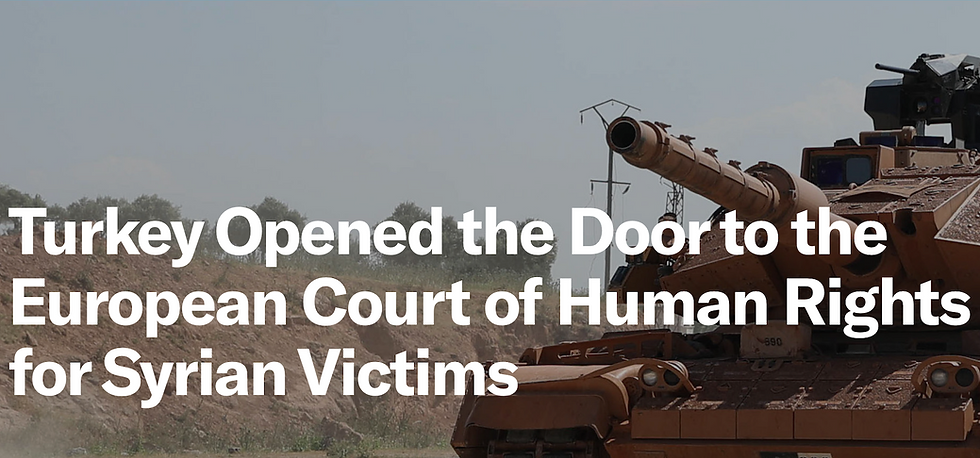
Statement by Genocide Watch to the US Commission on International Religious Freedom
In 2018 Turkish armed forces invaded and took control of the northern Syrian region of Afrin, which was largely populated by Kurds, Yazidis, Christians, and other minority groups. The Turks and their allied militias drove hundreds of thousands of people out of Afrin, many of whom sought refuge in northeastern Syria, governed by the Autonomous Administration of North and East Syria (AANE). At the end of 2019, Turkey also invaded northeastern Syria after President Trump ordered most US forces out of Syria.
In areas under Turkey’s control, civilians have been subjected to horrific crimes against humanity committed by Turkish forces and Turkish supported militias. Kurdish towns have been bombed and destroyed, some with white phosphorus, a war crime. Hundreds of civilians have been summarily executed. Kurdish and Yazidi women have been kidnapped and subjected to sexual slavery. Secret prisons hold hundreds of Kurds who are routinely tortured.
Massive amounts of property have been expropriated and turned over to thousands of Syrian Arab refugees, resettled from Turkey. Many Christians and Yazidis have fled to Europe or Iraqi Kurdistan. Turkey is forcing the displacement of hundreds of thousands of civilians from their homes. Turkey is perpetrating the full ethnic, religious, and demographic destruction of northern Syria.
Forced population transfers are war crimes under Articles 8 (2)(a)(vii)-1 and 8 (2)(b)(x)-1 of the Statute of the International Criminal Court. They are also crimes against humanity under Article 7 (1) (d) of the ICC Statute. They are crimes of universal jurisdiction in most of Western Europe. Torture and genocide are also crimes of universal jurisdiction in the US, Australia, New Zealand, and Senegal. Perpetrators of these crimes could be arrested and tried if they ever set foot in countries with universal jurisdiction.
Russia has vetoed referral of the situation in Syria to the International Criminal Court. There are no independent courts where perpetrators could be tried in Turkish occupied Syria. There is, however, one venue where Turkey could be held accountable for its crimes: The European Court of Human Rights. Turkey is a State-Party to the European Convention for Human Rights and Fundamental Freedoms.
Cyprus brought a complaint to the European Court of Human Rights following Turkey’s invasion of Northern Cyprus in 1974. The court held that its jurisdiction is not limited to the national territory of contracting states, but also arises “when as a consequence of military action – whether lawful or unlawful – it exercises effective control of an area outside its national territory.” (Cyprus v Turkey, para. 76)
Syrians have a right to bring complaints against Turkey in the European Court of Human Rights. Since there are no venues for local remedies, the European Court could hear their cases.
But would this do any good? It might embarrass Turkey, but it didn’t help northern Cypriots regain their land or their homes.
Law is not effective unless it is enforced by legitimate power. The AANES and the Syrian Democratic Forces (SDF) in northern Syria have lost their power to end Turkey’s occupation and to prosecute crimes committed by Turkish-backed militias.
They could only regain their authority in the occupied areas if the US demands Turkey’s withdrawal from Syria.
The current US administration shows only weak support for the AANES. The US Special Envoy to the region even supports Turkish control over northern Syria. He must be replaced as soon as possible.
The US is currently ignoring Turkey’s neo-Ottoman fascist ideology. It does not support federal solutions for the conflicts in Syria and Iraq. Federal structures supported by national governments and protected by regional and allied power are the only solutions that will end the conflicts in Syria and Iraq.
